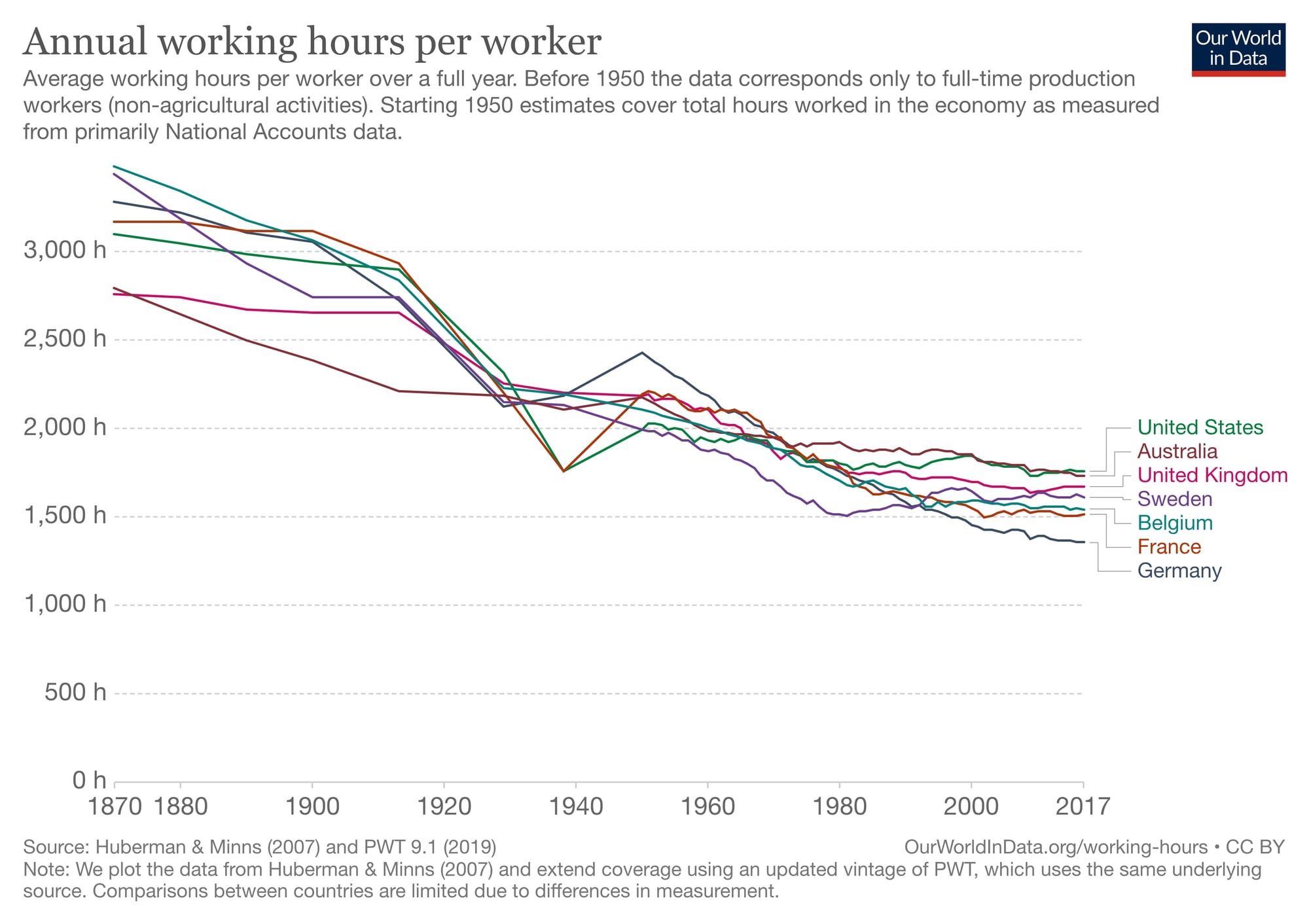Nights and Weekends

KA-CHUNK, KA-CHUNK, KA-CHUNK
The roofers working on the house behind me are disrupting my state of flow—and my illusions about difficult work.
I get paid to sit here in my ergonomic chair wiggling my phalanges on my over priced mechanical keyboard. If I get bored I can take a stroll on a walking pad.
I’ve been told this kind of thought work is difficult, not everyone is capable of it. I’m not sure about that and I find the compensation in my industry ridiculous for how easy the work is. I enjoy working in my climate controlled room. It’s a luxury, and I get paid to do it. The cacophony of nail guns reminds me just how easy the work is. Roofing must be hard work.
It’s not all RGB rainbows and butterflies though. Software engineering has a dark side.
Side projects.
They’ve become so commonplace, the expectation is constant work outside work hours. This isn’t healthy. When work is your hobby, that isn’t normal. I often joke about the doctor who, during his next interview, shares about the operations he is performing on the squirrels in his yard. You know, to keep up his skills and try the latest techniques. That would be really strange, right? Why is it normal in the information technology space? Perhaps I’m ignorant of side projects in other careers. We do have more free time now than ever before. Society has progressed and the total hours worked has seen a decrease in the past century.

I’m surprised to see the flattening on this graph. Technology has advanced, we have become more productive. Yet, we are still working the same number of hours roughly, and software engineers have the expectation of working off hours on hobby projects.
Perhaps this is a trend driven by the chronically connected who over share on social media, or the youths ™.
Sponge Syndrome
If you are starting your career, it makes sense to become absorbed in your work. Hopefully, it’s something you are passionate about and can’t get enough of. This is the best time to learn as much as you can and soak it up. (Insert old man's voice) Back in my day… I’d spend all day in my lovely cubicle, typing away and come home to continue tinkering with a personal project.
It’s powerful to learn everything you can and keep abreast of changes to your chosen area of work. I fear it’s glorified a bit too much, though. As I’ve grown out of the sponge phase, no longer eager to soak up everything but driven to improve and refine my understanding, I see this as problematic.
As an industry, we encourage constant work in, on, and with tech. Whether that is frontend development, building an API in the latest language, or using AI to create another chat bot. Building personal projects is table stakes in this industry and I don’t think it should be. Perhaps, if you are in sponge phase, it’s not quite time to wring it out, but look for something else.
Broaden Your View
No, this isn’t a pitch for getting that UltraWide monitor.
This is an appeal to spend your nights and weekends doing things that aren’t code. I’ve worked in numerous companies and roles. That experience has been fantastic, but the most impactful things for my career have been the activities outside work. Simple things, hobbies, interests, not work.
Why would an interest in something as non-technical as fly-fishing, one of many hobby detours I’ve taken, matter? From a purely anecdotal, personal experience point of view, it lets you think different, during the activity and after. My mind could chew on technical problems while waiting for a fish to bite. The patience gained from time spent waiting is irreplaceable.
When you spend all your time engrossed in a subject, your field of view narrows. You learn the accepted ways of solving problems, relying on them as the only ways. This narrow view helps you move fast, but when you run into a roadblock, it becomes a hinderance.
It’s like the old adage, “if your only tool is a hammer, everything becomes a nail.” While it's effective to nail everything in place, the person with a broad set of tools can get the job done more effectively and elegantly.
Broaden your experience and build a bigger tool chest. At the moment, it might feel counterintuitive, but I know as you add more variety, you’ll see the benefits.
What do you think?
Tell me about your thoughts non-code adventures. I’d love to hear what you think. Am I totally off base and a slacker who doesn’t want to build side projects and continually learn about software?

